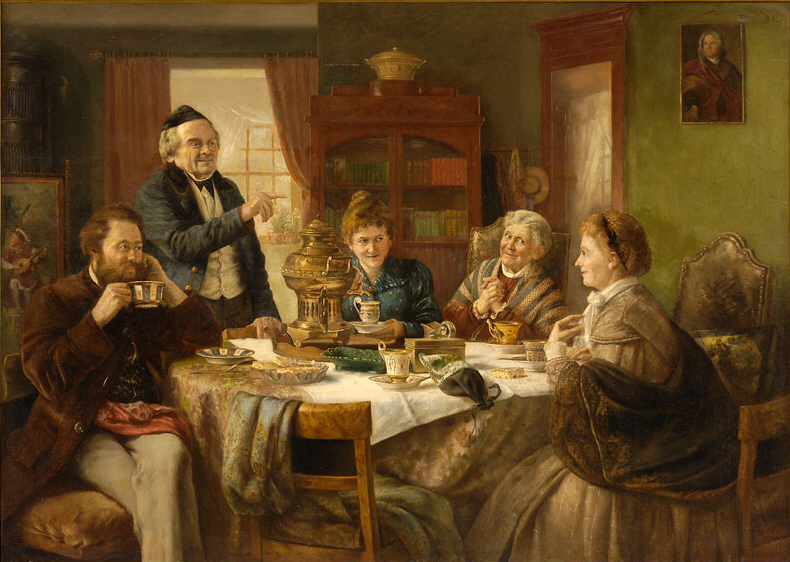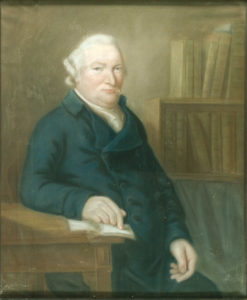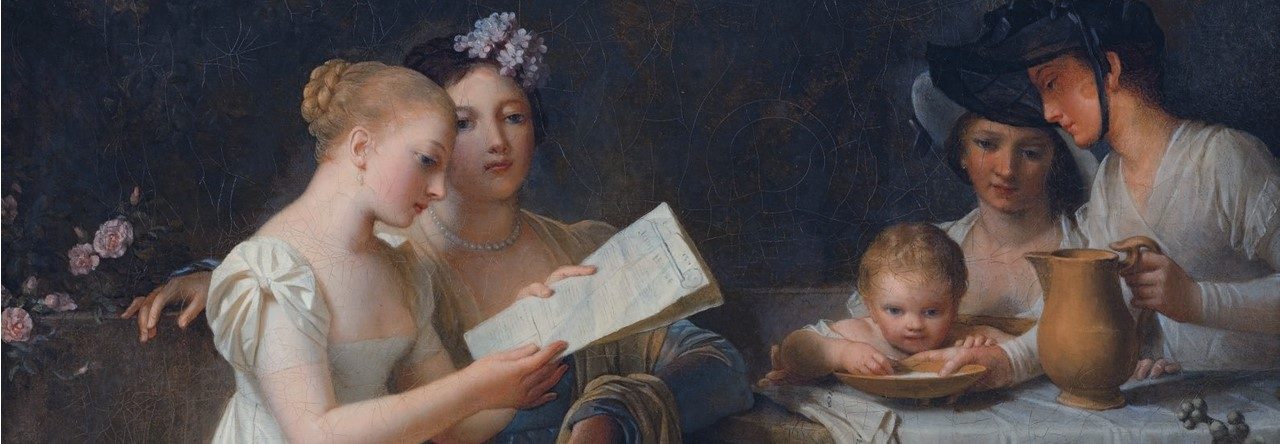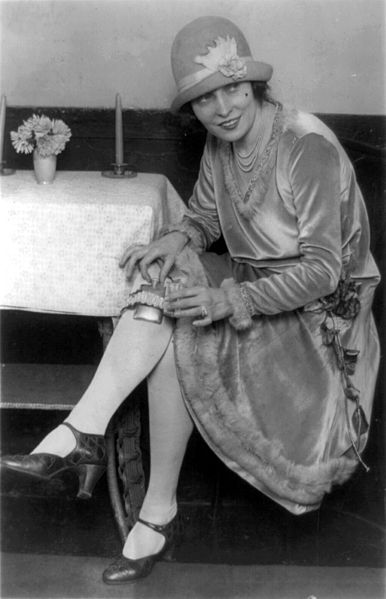 A new movement is afoot in the nation that has some citizens perplexed and others outright enraged. Your reporter has insinuated herself into a fashionable group of ladies and gentleman discussing this radical concept. Thank goodness the true identity of New York Herald society columnist Truly C. Goode is unknown, for I should never have received an invitation to this august gathering, or any other for that matter.
A new movement is afoot in the nation that has some citizens perplexed and others outright enraged. Your reporter has insinuated herself into a fashionable group of ladies and gentleman discussing this radical concept. Thank goodness the true identity of New York Herald society columnist Truly C. Goode is unknown, for I should never have received an invitation to this august gathering, or any other for that matter.
Join me now as we quietly observe my fellow guests. Mr. Albert van der Roos is holding forth at present, but Mr. Billy Wentworth and van der Roos’s niece, Miss Sarah Smythe are equally passionate on the subject presently under discussion.
“I say, do you really believe it possible? That this preacher should call for the banning of liquor is beyond the pale. The man should keep to the Good Book and leave honest folks in peace with their pastimes.” Mr. van der Roos slammed his fist onto the arm of his chair.
Miss Smythe fluttered her fan and smiled sweetly. “But dear Uncle Albert, surely you do not consider alcohol an entertainment.”
“Entertainment? Hardly. A necessity, by God. I can’t imagine life without its soothing effects. Only thing that gets some of us through the day.” Van der Roos’s eyes grew large as he observed his niece. “Don’t tell me you agree with the damned parson? You’re just a chit of a girl. What do you know of a man’s needs?”
Mr. Wentworth had thus far been content to lounge silently in the corner of the divan, but hearing Sarah so described roused him to give voice to his thoughts. “Miss Smythe may be young, but she has a right to her opinions.” He tilted his head as though in thought. “Of course, should this temperance idea take hold, it could have unintended consequences.”
Miss Smythe had at first brightened when Wentworth spoke, but now a glower marred her continence. “Really? And what bad could possibly occur? I should think preventing husbands of the lower classes drinking to the point of inebriation might better society. As it is, they beat their wives and children after spending the money for food on demon rum. It is the less fortunate of whom we must think.”
 Van der Roos harrumphed as his eyebrows rose nearly to his receding hairline. “The poor will always be with us. The Bible says so. Why should I be denied because the lower classes can’t hold their liquor?” Van der Roos ended on a blustery note, so incensed had he become.
Van der Roos harrumphed as his eyebrows rose nearly to his receding hairline. “The poor will always be with us. The Bible says so. Why should I be denied because the lower classes can’t hold their liquor?” Van der Roos ended on a blustery note, so incensed had he become.
Wentworth suppressed a smile with difficulty. “While both of you make excellent points, it is not the poor of whom I am thinking, but rather the criminal classes. Should this temperance thing take hold, and God forbid become law, I foresee great trouble. If we learned nothing from the whiskey tax rebellion of some years past, it should be that the government should leave a man and his liquor alone.”
Van der Roos beamed. “Hear, hear!”
Wentworth held up his hand and continued, “I foresee an entire criminal industry in the making, transporting, and selling of unlicensed liquor growing up overnight should temperance become law.” He shook his head as if in disbelief. “I don’t think you need worry, van der Roos. Such insanity will never pass the Congress. Too many of the members enjoy their tipple overly well.”
________________
Of course, 120 years after this conversation took place, Congress passed the Volstead Act and all of Wentworth’s fears were indeed realized. Linda Bennett Pennell’sMiami Days, Havana Nights gives readers an inside look at the unintended consequences of Prohibition.
Excerpt
Chapter 1
May 18, 1926
105 South Street
New York City
Knocking – sharp, loud, rapid – echoed through the empty speakeasy. Sam froze, the notes of a tune stuck in the roof of his mouth. He glanced at the entrance and leaned the handle of his push broom against his shoulder. Puffs of dust settled on the floor boards around his feet while he remained motionless.
It was late, too late, to be admitting customers, even for the city’s illegal watering holes and gambling joints. Although a thick crossbar and several stout locks protected the heavy iron door, an uneasy feeling crawled down Sam’s spine. Growing tension over control of the Fulton Fish Market, in fact the entire South Street area, was making a lot of people jumpy, including him.
Several seconds passed without noise from the other side of the door. Sam let out his breath and laughed at himself. Working at the fish market in the afternoon then staying up half the night at the speakeasy didn’t leave much time for sleep. It kept him on edge. All the rumors and threats floating around these days weren’t helping either. Inclining his ear and hearing nothing, he relaxed and gave his broom a shove.
Bam, bam, bam.
Sam’s heart jumped into his throat.
“Open up, Monza. I know you’re in there.” The shout, colored by an Irish lilt, came from the second floor landing accompanied by renewed pounding. “I come to talk with ya. We need to settle this business. I got a proposition for ya.”
Sam’s breathing kicked up a notch as he looked over his shoulder toward the office. The boss didn’t like to be disturbed when he was meeting with his guys. The pounding from outside in the hall returned in earnest, but the office door remained fixed.
“You gonna open this damned door or do I break it down?” The door knob rattled and jerked.
Behind Sam, the office door clicked open an inch. He watched in the mirror over the bar as the muzzle of a .38 Special emerged from the opening, its nickel-plated barrel glittering in the overhead lights. One of the gangsters stepped into the room, met Sam’s eye in the mirror, and jerked his head, then the room went dark. Sam dropped his broom and backed into an alcove next to the bar. The office door opened wider. Several shadows scurried across the floor. Metal locks and bolts snapped and clanked, then the entrance door swung inward.
About the Book
Debts. Most people have them. Many involve money. Others fall into less well-defined categories
1926, New York City. After witnessing a gangland murder, seventeen-year-old Sam Ackerman is sent to Miami under Moshe Toblinsky’s protection. Once in Miami, Sam is forced into bootlegging. He falls in love with Rebecca, whose devout parents refuse to approve the match until he disentangles himself from his criminal bosses. With the end of Prohibition, Sam persuades Toblinsky to set him free. The price? A debt, as Toblinsky puts it, of friendship. A debt that Sam keeps secret from Rebecca. A debt that will one day come due.
Present day, Gainesville, Florida. History of American Crime professor Liz Reams seems to have it all – early success in her field, a tantalizing discovery associated with old time gangster Moshe Toblinsky, and the love of a wonderful man. Life is perfect. So why does she keep refusing her guy’s proposals? Her journey toward understanding begins when she must confront a long-term, yet unacknowledged, personal debt. Once on the path of self-discovery, she finds clarification at every turning, most importantly during her research into Sam’s life. All of these personal revelations come at a price, however, as she becomes embroiled in emotional and physical dangers that may prove greater than she can handle.
Miami Days, Havana Nights releases on Amazon July 18, 2018.
 About the Author
About the Author
I have been in love with the past for as long as I can remember. Anything with a history, whether shabby or majestic, recent or ancient, instantly draws me in. I suppose it comes from being part of a large extended family that spanned several generations. Long summer afternoons on my grandmother’s porch or winter evenings gathered around her fireplace were filled with stories both entertaining and poignant. Of course being set in the American South, those stories were also peopled by some very interesting characters, some of whom have found their way into my work.
As for my venture in writing, it has allowed me to reinvent myself. We humans are truly multifaceted creatures, but unfortunately we tend to sort and categorize each other into neat, easily understood packages that rarely reveal the whole person. Perhaps you, too, want to step out of the box in which you find yourself. I encourage you to look at the possibilities and imagine. Be filled with childlike wonder in your mental wanderings. Envision what might be, not simply what is. Let us never forget, all good fiction begins when someone says to her or himself, “Let’s pretend.”
I reside in the Houston area with one sweet husband and one adorable German Shorthaired Pointer who is quite certain she’s a little girl.
“History is filled with the sound of silken slippers going downstairs and wooden shoes coming up.” Voltaire
Other Books:
Al Capone at the Blanche Hotel from Soul Mate Publishing
Confederado do Norte from Soul Mate Publishing
When War Came Homefrom real Cypress Press
Casablanca: Appointment at Dawn from the Wild Rose Press
Facebook: https://www.facebook.com/AuthorLindaBennettPennell
Website: http://www.lindapennell.com/
Twitter: @LindaPennell
Pinterest: https://www.pinterest.com/lindabennettpen/linda-bennett-pennell-author/?eq=linda%20bennett%20penn&etslf=9081
Newsletter Sign Up: http://www.lindapennell.com/newsletter.html

 Long has everyone suspected a local woman being a bootlegger north of town. This secret—maybe no different
Long has everyone suspected a local woman being a bootlegger north of town. This secret—maybe no different